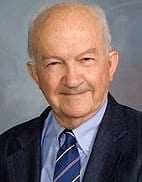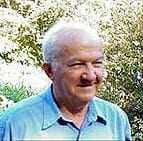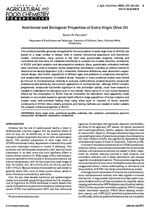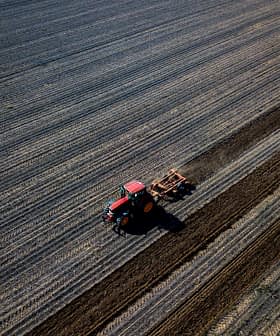Among the world’s most distinguished chemists, Dr. Edwin Frankel is at once an esteemed icon and a formidable force among his peers. An established expert on lipid oxidation, Frankel has turned his focus to extra virgin olive oil, working to improve standards based on better analytical methods. Bold and controversial, his recently published findings have gripped the attention of the industry as they pave the way toward scientific strides for California olive oil.
There’s nobody in the world who’s his peer.
A strong supporter of the California olive oil industry, Frankel has his sights set on the better standards so that California EVOO can meet benchmarks higher than European or even those proposed in Australia. “California is in a position to make California olive oil the most scientifically documented for quality and health of anywhere in the world,” said Frankel’s major collaborator over the years, UC Davis professor and food chemist Bruce German. “California is in position to put its product scientifically at the forefront,” continues German, who is confident Frankel is the one to do it. “There’s nobody in the world who’s his peer.”

Though the taste is the main criteria used by the International Olive Council to test for extra virgin olive oil, the flavor is subjective, German explains. If chemical analysis is performed, mostly to deem an oil adulterated or spoiled, peroxide value (PV) is one of the hallmarks used to measure oxidation. The trouble is, German notes, “Most people don’t know how to measure oxidation. Ed is uniquely qualified to do so.”
Last year’s controversial report from the UC Davis Olive Center let the industry know it. Frankel’s team of scientists found that 69 percent of imported olive oil samples and 10 percent of California olive oil samples labeled extra virgin olive oil failed international chemical and sensory standards for EVOO. The report stated, “Our laboratory tests indicated that the IOC and USDA chemical standards often do not detect defective olive oils that fail extra virgin sensory standards.”
The report also said the IOC and USDA olive oil standards would be more effective by including the German/Australian DAGs and PPP standards which indicate old, poor quality, oxidation and adulteration with cheaper refined oils. The IOC as well as the North American Olive Oil Association (NAOOA), a trade association representing olive oil importers, disagreed with the study, deeming those methods unreliable.
“He’s not making any friends in the IOC,” Richard Cantrill, Technical Director of the American Oil Chemists Society (AOCS) said of Frankel. “He’s an outsider trying to get in. He’ll have some real difficulty,” he said, but acknowledges that Frankel’s well-known tenacity along with asking enough questions will open people’s minds. Those who have had the privilege of working with Dr. Frankel know what to expect.
High analytical standards paired with unguarded honesty define Dr. Frankel’s work and have earned him the respect of his colleagues. “It takes courage to seek and speak the truth,” said Dan Flynn, Director of the U.C. Davis Olive Center who worked closely with Dr. Frankel for truth in labeling. “His colleagues can count on him to give it to them unvarnished.”
Dr. Frankel has been prolific at doing just that. He has published 92 papers and his work has been cited 1100 times, distinguishing him as one of the most cited authors in his field. He also holds almost every award the American Oil Chemists’ Society (AOCS) can give out, according to Cantrill, who describes Frankel as “a world leader and expert on lipid oxidation.”
Frankel spent 31 years working for the Department of Agriculture in Peoria, Illinois, before he retired as Lead Scientist in 1989 and began his second career, clearly his true calling, as an adjunct professor at UC Davis, his alma mater. Olive oil first piqued his interest in 1995 when he had the opportunity to work with a visiting scientist from Spain.

They compared a few imported and California olive oil samples from a local cooperative market to a refined, bleached, and deodorized oil with a 0.4 peroxide value (PV). All of the oils had a high PV ranging from 11 – 33. The IOC standard is 20 which Frankel argues is “way too high. It doesn’t take much oxidation, that little bit can produce very undesirable flavor compounds.” His research led him to the unpopular opinion that PV is not a reliable way of measuring oxidation and he has been very critical of some of the extensive published research in Spain. “I’m at the stage in my career,” said Frankel, “where I can be critical.”
He believes the high PV of those samples was due to a misconception that EVOO is stable forever. There are samples sitting on shelves for years, he said, when the actual storage life of an unopened bottle should be no longer than one year. “Other oils,” explains Frankel, “are dated and when they’re on the shelf too long, they’re replaced. This is not done with olive oil. Enter last year’s UC Davis findings and Dr. Frankel’s opinion that “the imported history is very questionable.”
 The UC Davis report was only the beginning. Frankel’s most recent research is newly published in two perspective papers, the first addresses adulteration, oxidative stability and antioxidants in the chemistry of EVOO. The second challenges the barrage of nutrition claims that boast the virtue of olive oil. “In my view,” he said, “these claims may be greatly exaggerated and not based on sound scientific evidence.” His main problem with these claims is “the use of lousy methods,” said Frankel, who explained that the Spanish have spent a huge amount of resources using questionable analytical methods and commercial kits not validated scientifically to measure the nutrition value of olive oil. “They are looking for quick and dirty methods. Most of the data is questionable. They’re using huge money when they need to be using better methods.”
The UC Davis report was only the beginning. Frankel’s most recent research is newly published in two perspective papers, the first addresses adulteration, oxidative stability and antioxidants in the chemistry of EVOO. The second challenges the barrage of nutrition claims that boast the virtue of olive oil. “In my view,” he said, “these claims may be greatly exaggerated and not based on sound scientific evidence.” His main problem with these claims is “the use of lousy methods,” said Frankel, who explained that the Spanish have spent a huge amount of resources using questionable analytical methods and commercial kits not validated scientifically to measure the nutrition value of olive oil. “They are looking for quick and dirty methods. Most of the data is questionable. They’re using huge money when they need to be using better methods.”
Regardless of how Dr. Frankel’s research is received, the olive oil industry stands to benefit from the progress he’s commenced. His drive and integrity have guided and honed his expertise, placing him in a unique position. Dan Flynn’s words speak to California and the entire industry when he said of Frankel, “He’s a towering figure and we’re very lucky he’s turning his attention to olive oil.”








